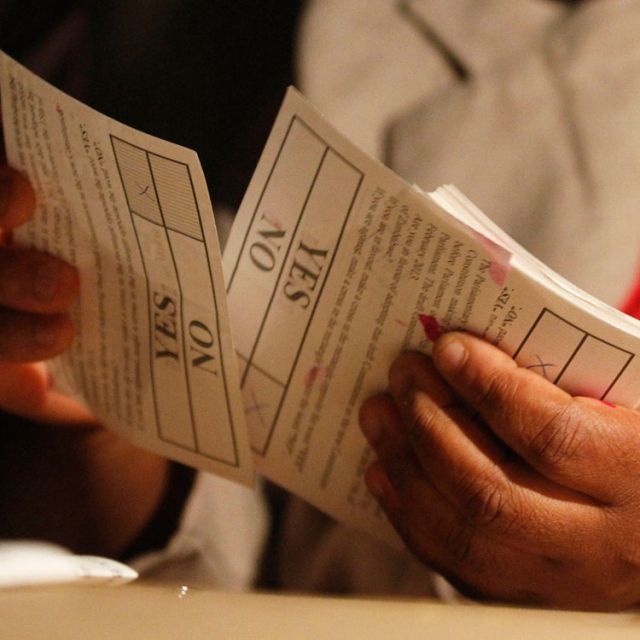"The political fault lines and their impact on all aspects of the lives of Zimbabweans are set not only to deepen, but also to stand in the way of progress and ultimately in the way of peace," the Zimbabwe Catholic Bishops' Conference said in a Dec. 3 pastoral letter.
"We note with apprehension that ... there are no visible prospects for improvement in the spheres of life in Zimbabwe that cry for restoration to give people hope for a better life," the bishops said.
"Daily water and power cuts, shortage of medicines, equipment and professional personnel in our hospitals, chaos and carnage on our roads, raw sewage flowing in the streets of our towns and cities — the list of what reduces us as a people, our dignity and our hope for a better life is long," said the letter signed by the country's nine bishops, including the conference president, Bishop Angel Floro.
Zimbabwe urgently needs to create "viable platforms to address effectively" the restoration of the public services sector, including "health, education, water, sanitation, transport and energy," the bishops said.
Also critical are "full re-engagement with the international community," restoration of the economy, particularly the manufacturing sector, and "restoration of Zimbabwe's historical status as the breadbasket of the southern Africa region with guaranteed food security for her people," they said.
"Our industrial sites carry the appearance of ghost towns because the once-vibrant manufacturing sector is now largely moribund," the bishops said.
"The dignity of our people has been severely eroded" because, to survive, Zimbabweans turn to selling "cheap goods and products at street corners in our cities," they said.
The July elections in which 89-year-old President Robert Mugabe was re-elected "have left Zimbabweans more polarized than they were before and during" the unity government formed after disputed 2008 elections, the bishops said.
Although the unity government drew criticism, "it would be hard to deny that some visible progress was made to improve the lot of our people, particularly the lot of the poor in our society who were making frequent and regular visits to neighbouring countries to buy basics for survival, as shops in our country were empty," they said.
"What made this improvement possible was the fact that Zimbabweans, including the political parties, worked together for the common good," they said.
The bishops said the fact that the unity government was always seen as a "temporary marriage of convenience foisted on the political parties" by Zimbabwe's neighbouring countries was a problem and noted that the current "winner-take-all political arrangement will not benefit Zimbabwe and her people at this stage of our political development."
All parties need to work together to achieve the restoration that Zimbabwe needs, the bishops said.
"Zimbabwe is blessed with abundant natural resources and resilient, God-fearing and highly skilled people," they said, noting that this abundance "gives us encouragement and hope that Zimbabweans can transform this unsatisfactory situation and in its place create a better life for all Zimbabweans."
Political will at all levels is necessary to achieve this, the letter said.
Noting that Zimbabwe has "experts in all the areas of greatest need in our economy," the bishops urged that non-partisan task teams be set up to address national economic transformation, the setting up of social services, and Zimbabwe's integration into the international community.


